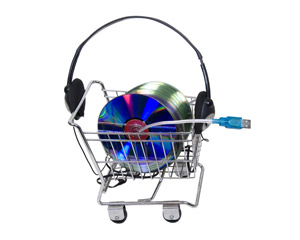- You are here:
-
Home

-
Asian e-Marketing

-
November - December 2009

- Ubercart Checks-In
-

Black Friday Online Shopping Safety Checklist
Vigilance is urged during this 2023 Black Friday and Cyber Monday, as “AI generated scams enhance the threat to this year’s festive shoppers, as it’s revealed over 7 in 10 British people worry that AI will make it easier for criminals to commit online fraud” – NCSC.
But while AI scams like voice cloning, romance scams, and language mimicking are on the rise, “93% of the biggest spenders, millennials aged 24-35, plan to shop during this coming weekend. And they spend an average of $419.52 per person.” But with cyber security threats at an all-time high, how can shoppers and businesses stay cyber safe?
Here are our top tips for staying safe online, and the preventative measures that can be taken while shopping for your latest bargain.- Be Aware of Phishing & Quishing Attacks
SecurityHQ analysts have recently observed a significant increase in Business Email Compromise (BEC), regarding phishing attacks containing QR code (Quishing) and captchas for credentials harvesting. Quishing attacks usually occur via the scanning of a QR code. This technique involves tricking users into scanning a QR code using a mobile phone. The QR code then redirects the user to a phishing or fake website that aims to steal their credentials.
Read more about Quishing, and how to spot QR Code vulnerabilities, here. - Read the Small Print
If something seems too good to be true, it probably is. While Black Friday deals can offer huge discounts that are genuine, people still need to make money. Anything ridiculously cheap is a red flag.
What to look for:
- It is worth checking the reputation score of retailers to determine if that retailer can be trusted.
- A website with no company address, descriptions or specifications on items are all red flags. Look for the details. And do not base purchases solely off star ratings, as these can be fake.
- Pop-ups that offer free electronics are obvious scams, containing malicious phishing links, and should be avoided at all costs.
- Read the small print. Often cons are perfectly visible if you know what to look for. Like seeing a picture of a laptop being advertised, going to buy said laptop for a reduced rate without reading the small print, and receiving a literal picture of a laptop in the post. The devil is in the detail.
- Use Reputable Websites/Companies
Tried and Tested – Using websites that are globally known is a good way to avoid any nasty surprises. Even if it is a couple of pounds more, it is worth knowing where your money is going and that your purchase will be tracked and delivered.
Use Antivirus Software that will warn you of potentially dangerous sites in search results as well.
Look For Suspicious Emails, as well as suspicious calls and text messages. Never click on a link you are unsure of, and never provide personal information over the phone. Read more on email security, here. - Stop, Look, Check, Pay
Secure Sockets Layers (SSL) are used to ensure data is encrypted before being transmitted across the web. It is also an indication that an organization has been verified. Keep an eye out for HTTPS in the address bar rather than HTTP, as this highlights a site uses SSL.
Make Sure the Website That You Intend to Shop on is Not a Copy of a legitimate one. Verify that the date and name of the organization are consistent with the site you are visiting. And look for typos in the URL. Your best bet it to go directly to the website yourself, and do not access it through links on other sites/emails.
When using public Wi-Fi, use a VPN as the most effective way to stay safe and so that hackers do not steal your personal data while you are on an unsecure network. - Check Your Bank Account
- Use a credit card or payment method which offers protection (i.e., PayPal).
- Check your accounts regularly for fraudulent activity.
- Only provide enough details to complete your purchase (no extra details required)
- Keep Your Passwords Safe & Don’t Use Default Credentials
Default credentials used by applications and appliances are often published on the internet. This can be a big problem. An attacker will typically first scan your network to see where they can move next. If an attacker was lucky enough to identify applications or appliances with default credentials enabled, it won’t take them long to hunt on the internet for these published credentials. Read how to detect default credentials, here.
Finally, keep your passwords safe. Read this blog on password protocols to learn more. Don’t let cyber scams ruin your festive fun this winter!
By SecurityHQ - Be Aware of Phishing & Quishing Attacks
-

EdTech Intel: 6 Ways AI is Revolutionizing Online Learning
After years of steadily picking up steam, online learning is experiencing undeniable explosive growth. The market is racing toward $1 trillion, with the corporate e-learning space expected to skyrocket 250% in the coming years. As e-learning continues to expand beyond the walls of academia, another game-changing phenomenon is going mainstream in a big way: artificial intelligence (AI).
-

Alibaba Cloud unveils new AI Model to support enterprises' intelligence transformation
Alibaba Cloud, the digital technology and intelligence backbone of Alibaba Group unveiled its latest large language model, Tongyi Qianwen.
-

How AI will change the way we work in Asia Pacific
Microsoft introduced Microsoft 365 Copilot earlier this year, which will bring powerful new generative AI capabilities to apps millions of people use every day like Microsoft Word, Excel, PowerPoint, Outlook, Microsoft Teams and more.
-

API Security Company Neosec acquired by Akamai Technologies
Akamai Technologies, Inc. announced entering into a definitive agreement to acquire Neosec, an API detection and response platform based on data and behavioral analytics.
-

Comprehensive protection measures a must to prevent data leaks and theft
Remote work, home office or hybrid work, have become the norm in today's business world and that most likely will stay that way. But the more employees work remotely, the greater the company's risk of falling victim to a cyberattack, making a sophisticated and multi-layered security concept the more essential for any company.
-

Mindful Employer Branding Key to Successful Staff, HR Recruitment
In modern society, building an inclusive employer brand should be considered mission critical for businesses large and small. The most successful companies are the ones that see challenges and opportunities from many different angles, and having a diverse employee population allows you to do just that. An inclusive employer brand lets you engage, recruit, and hire a wonderful spectrum of people who can bring their varied backgrounds to bear for your business. Simply put, building an inclusive employer brand brings a diverse set of experiences and perspectives to the table, which in turn allows your company to be smarter, more thoughtful, and ultimately more successful.
-

IBM report: half of breached organizations unwilling to increase security spend despite soaring breach costs
IBM released its annual Cost of a Data Breach Report, showing the global average cost of a data breach reached $4.45 million in 2023 – an all-time high for the report and a 15% increase over the last 3 years. Detection and escalation costs jumped 42% over this same time frame, representing the highest portion of breach costs, and indicating a shift towards more complex breach investigations.
-

Cybersecurity in the age of digital currency
Cryptocurrencies can be notoriously volatile. With prices fluctuating rapidly and without warning, a single tweet can shift a token price by 40%, only to see the price plummet in a matter of hours. While fluctuations are expected within crypto currency, you need to be able to spot the difference between what is a normal event, and what is a scam.
-

KAWO’s "Guide to China Social Metrics" helps marketing teams translate KPIs into business success
KAWO, the leading social media management platform in China, has launched its 2023 “Guide to China Social Metrics.”
-

Majority of APAC consumers are willing to sacrifice data security for convenience
F5's latest Curve of Convenience 2023 report shows data security taking a back seat with APAC consumers, with an increased willingness to save and share personal payment data on multiple platforms.
-

Meltwater delivers the future of media, social and consumer intelligence through OpenAI models and advanced algorithms
Meltwater empowers companies with a suite of solutions that spans media, social, consumer and sales intelligence by analyzing ~1 billion pieces of content each day and transforming them into vital insights. Now, the company announces new AI-powered product innovations across multiple solutions that allow customers to surface insights, boost efficiency, and generate content.
-

Content Remains King in the Future of Video in India
The Asia Video Industry Association’s (AVIA) Future of Video India conference opened to a full house with a keynote conversation with Shri Apurva Chandra, Secretary, Ministry of Information and Broadcasting (MIB). Secretary Chandra stated that with OTT (over-the-top), Indian content has become more accessible and more acceptable to a global audience. “Quality of content has always been very good in India, but now it is easier for Indian content to travel across the world. OTT has helped it in a big way,” said Chandra. He also reiterated the need for OTT to continue with a soft touch approach, as the three tier self-regulatory system has been working well. While there were concerns that light touch regulation has led to less desirable content, he remained of the view that the industry needed to be more self-aware so that the government need not step in. Chandra also shared that a National Broadcasting Policy has been in the works, as the industry was becoming more fragmented. However, this would take time in order to balance the conflicting interests of all the disparate parties.
-

Revealed: The most creatively effective digital & TV ads in Southeast Asia
The marketing data and analytics company, Kantar, revealed the winners of the 2023 Creative Effectiveness Awards in Southeast Asia, recognizing the most impactful ads of last year.




















 These days online shopping has revolutionized the internet space and many businesses have powered their online existence with strong e commerce based applications such as the shopping cart. If you looking for a fully-featured online shopping cart utility then check out Ubercart , an open source e-commerce solution fully integrated with the popular Drupal Content Management System (CMS).
These days online shopping has revolutionized the internet space and many businesses have powered their online existence with strong e commerce based applications such as the shopping cart. If you looking for a fully-featured online shopping cart utility then check out Ubercart , an open source e-commerce solution fully integrated with the popular Drupal Content Management System (CMS). 



































